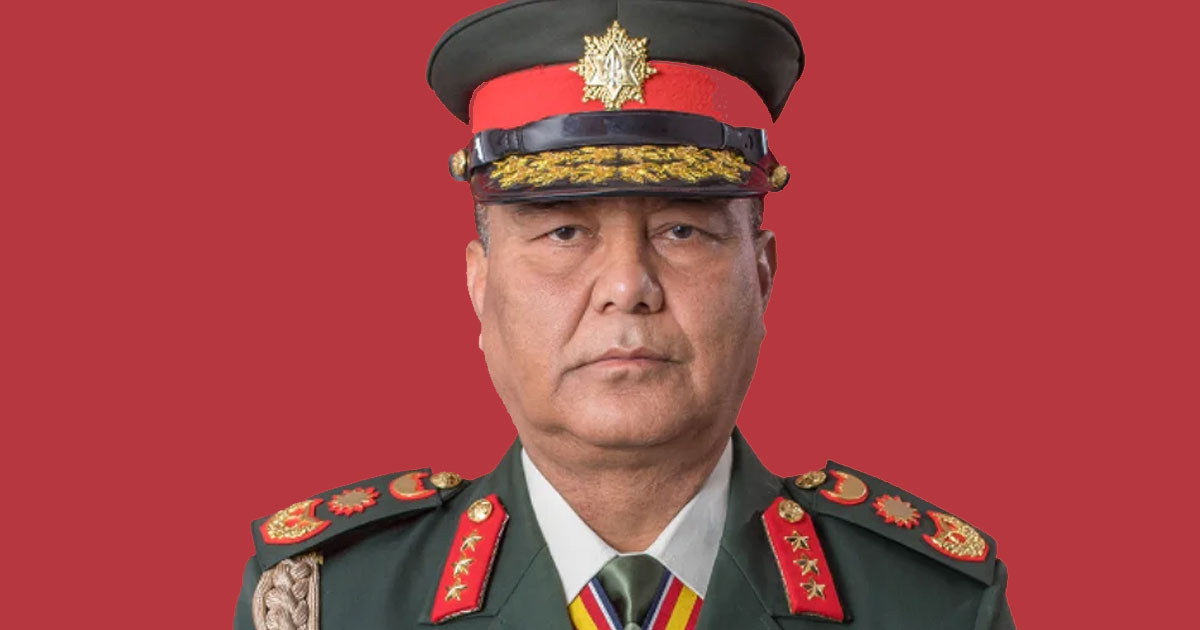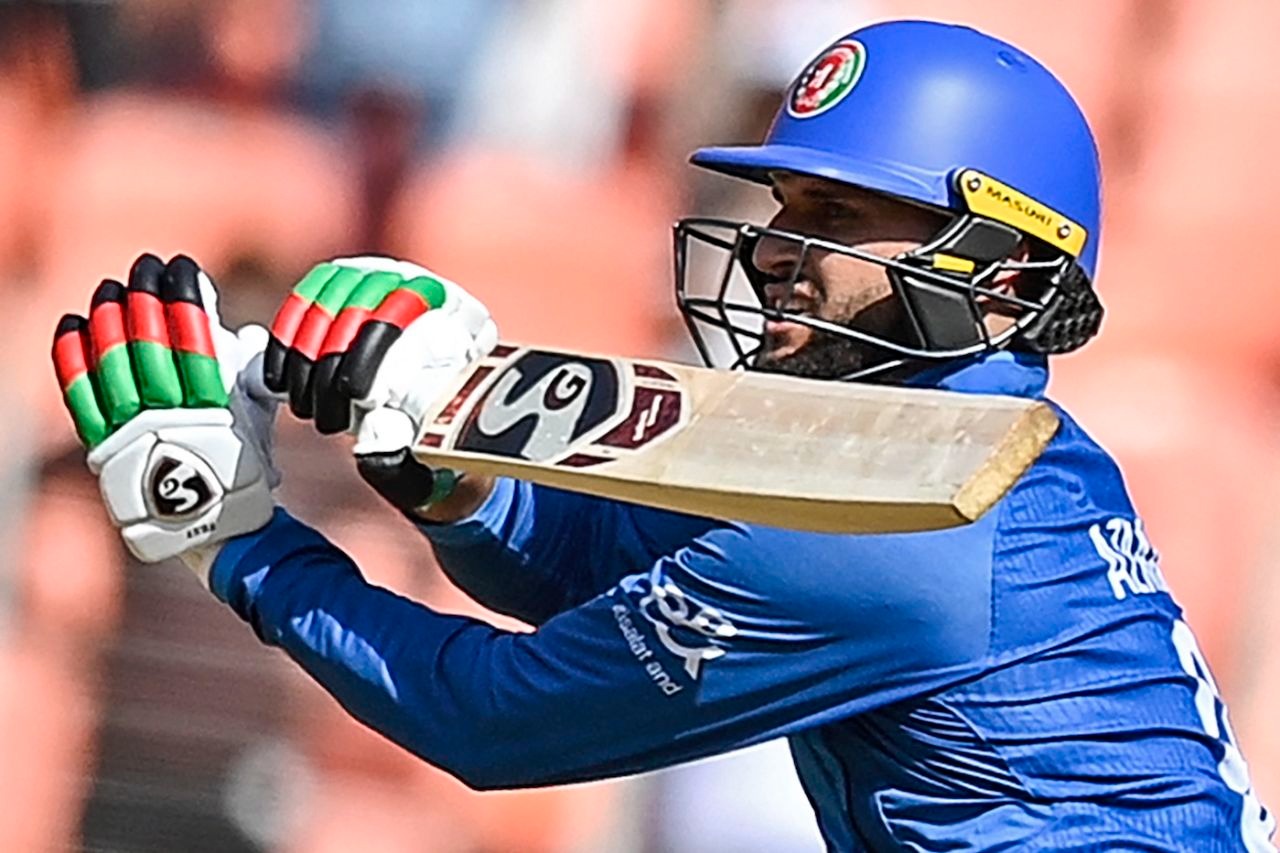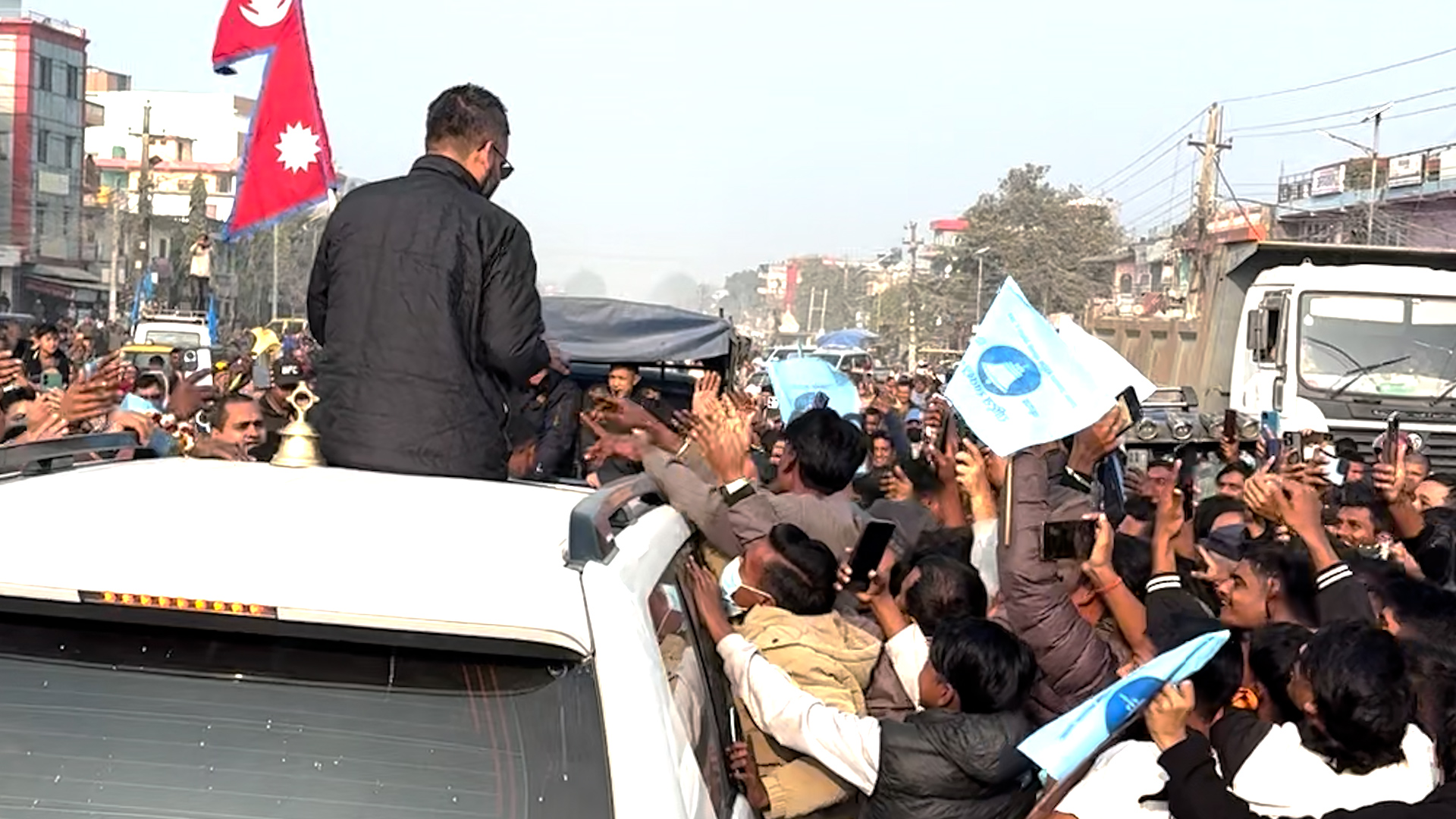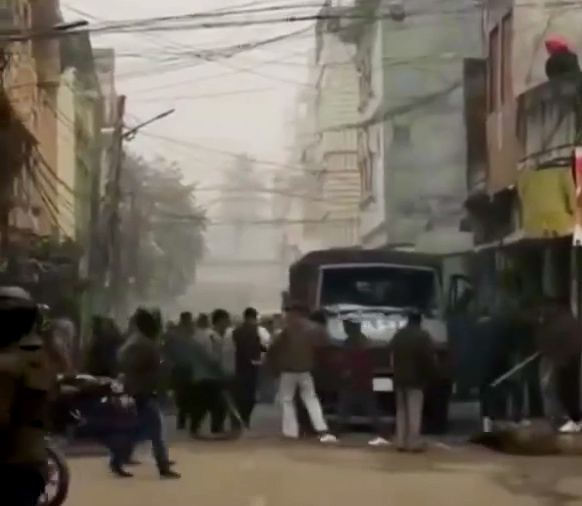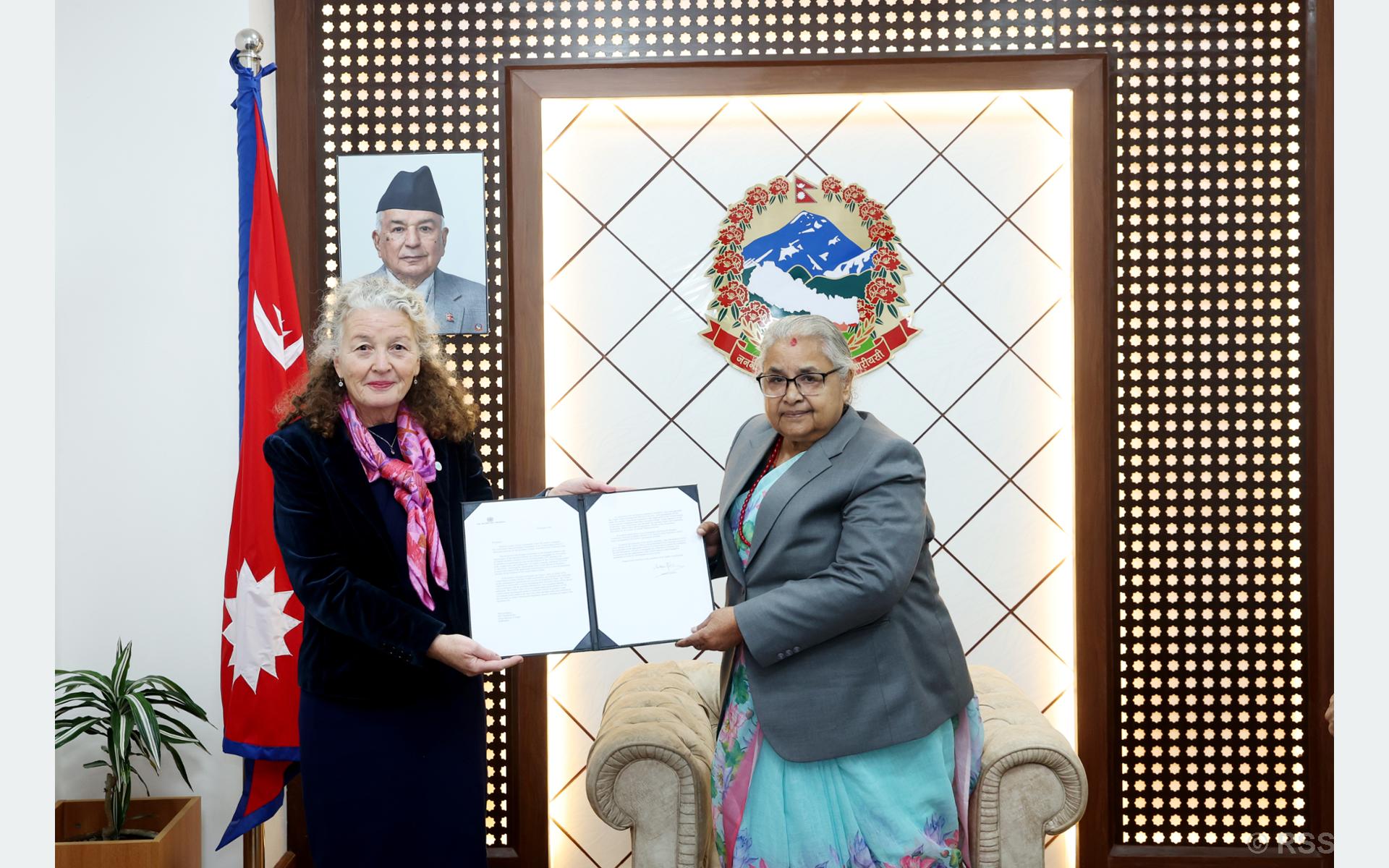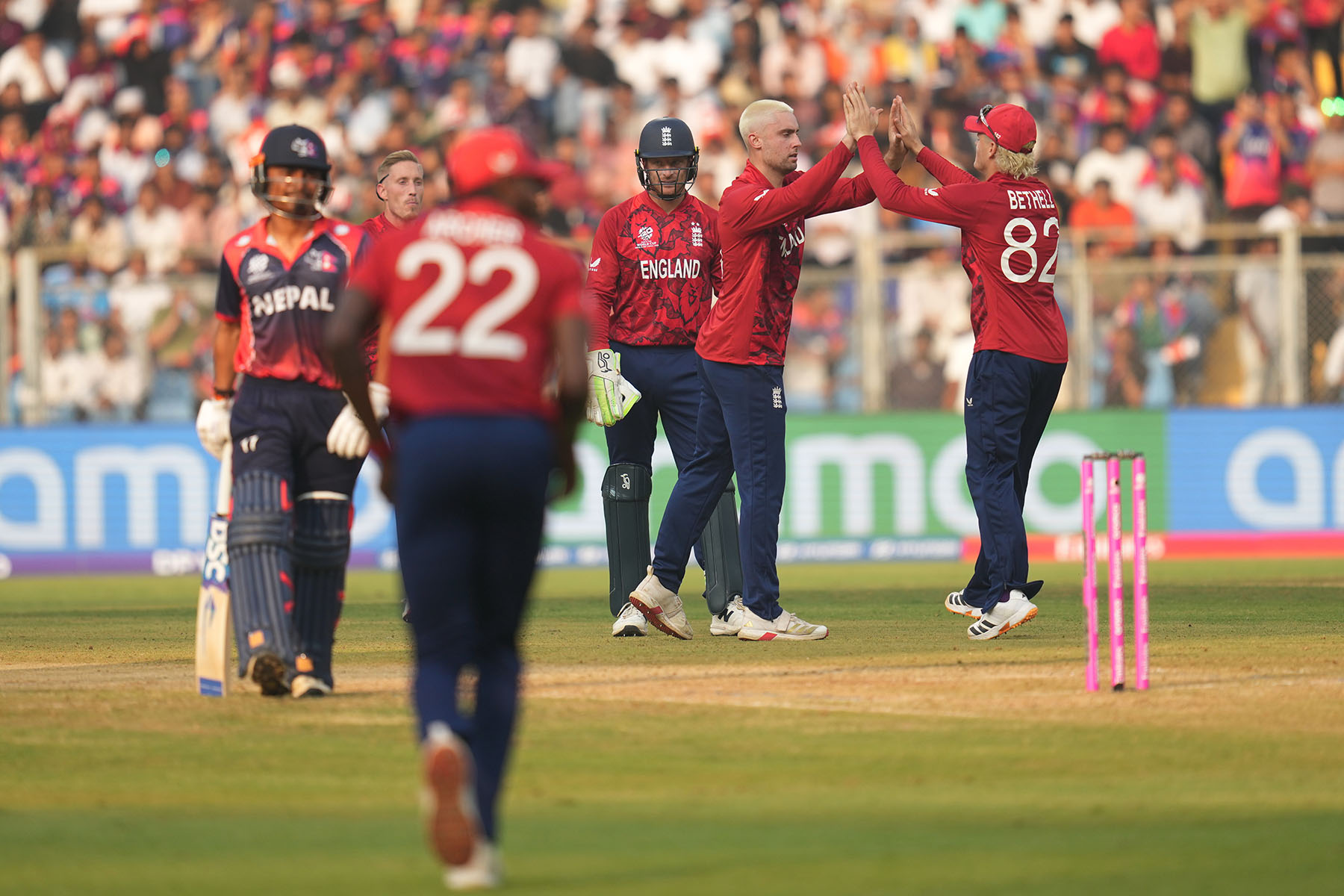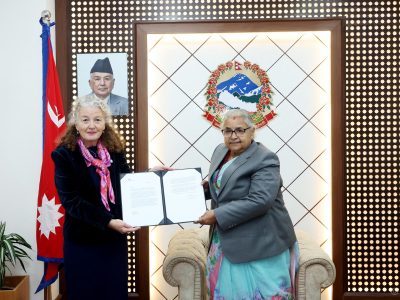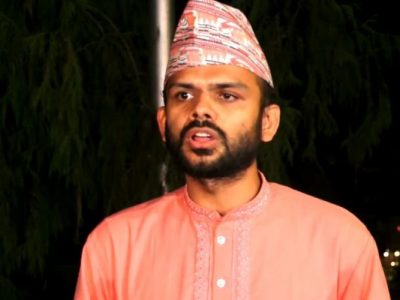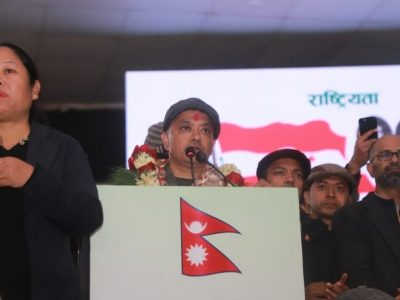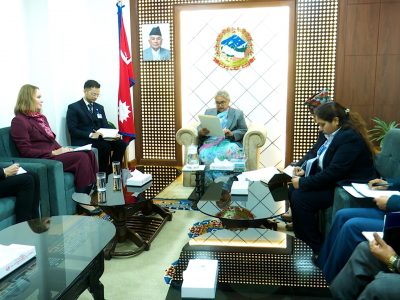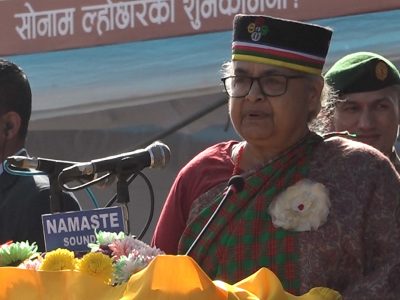High-Level Dialogue on the Pandemic Accord held in Kathmandu
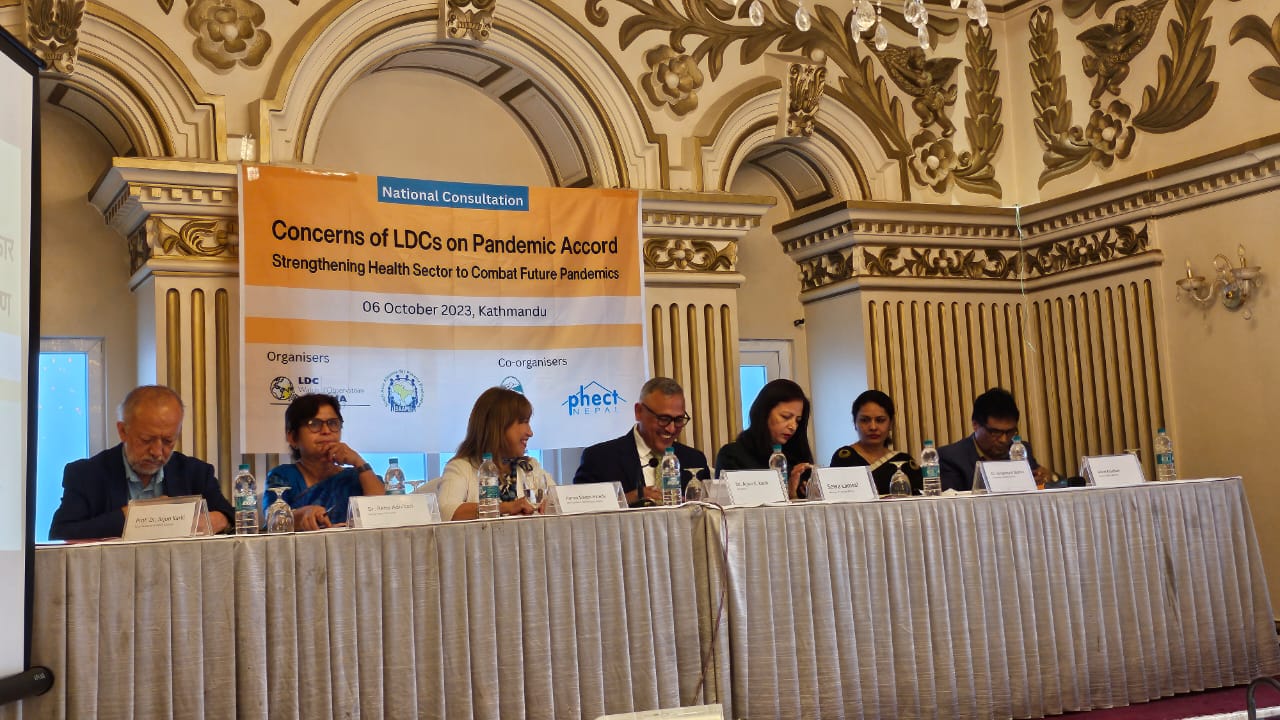
Kathmandu, Oct 8: In a bid to address the pressing healthcare challenges arising from the COVID-19 pandemic and prepare for future pandemics, an event was held in Kathmandu, with the topic “Concerns of LDCs on Pandemic Accord: Strengthening Health Sector to Combat Future Pandemics”. The event brought together key stakeholders to share insights, discuss healthcare challenges, propose innovative solutions, and forge collaborations aimed at enhancing healthcare quality and access, especially in the world’s Least Developed Countries (LDCs).
In light of the impact of the COVID-19 pandemic, WHO’s 194 Member States established a process to draft and negotiate a new convention, agreement, or other international instrument, generally referred to as an “accord” on pandemic preparedness and response. This was driven by the need to ensure communities, governments, and all sectors of society – within countries and globally – are better prepared and protected, in order to prevent and respond to future pandemics. The great loss of human life, disruption to households and societies at large, and impact on development are among the factors cited by governments to support the need for lasting action to prevent a repeat of such crises.
At the heart of the proposed accord is the need to ensure equity in both access to the tools needed to prevent pandemics (including technologies including vaccines, live-saving drugs, personal protective equipment, information and expertise) and access to health care for all people. The COVID-19 pandemic has laid bare the vulnerabilities and disparities in healthcare systems across the globe, with LDCs facing unique and severe challenges in responding to the crisis.
“We are at a critical juncture in global healthcare where we we find ourselves in a globalised world and no one is safe unless everyone is safe.” said Prof. Dr Arjun Karki, who was gave the keynote speech at the program. He further stated “We need to be proactively engaged in the drafting and making of the actual accord and ensure, in the long run, that it is more responsive to our needs, all the while being prepared for a similar kind of pandemic in the future.”
“It is really the minorities like women and other marginalised groups that are the most severely affected by any pandemic and the key way to address this is to have a concrete plan to address the situation” said Hanna Singer-Hamdy, UN Resident Coordinator, Nepal. She further added, “We need to double our efforts because of the multiplying effect of climate change, which has added to the ever increasing vulnerability of the marginalised segments of the population”
Speaking at the technical session of the event, Dr Sher Bahadur Pun said, “We must always remember the lessons of the past, especially when it comes to past pandemics. Also, when the pandemic occurred, the country was already in a federal system. However, with the advent of the pandemic, the federal system was not able to cohesively address the issue and there was a significant gap in coordination and communication.”
The event was attended by numerous dignitaries, including members of the National Assembly and the House of Representatives. Joining them were Ms. Sewa Lamsal, Joint Secretary of the Ministry of Foreign Affairs, Nepal (MoFA), and hugely experienced individuals from the health and social sector, such as Dr. Sangeeta K. Mishra from the Department of Health Services, prominent human rights defenders like Gauri Pradhan and Dr. Renu Adhikari, Prof. Dr. Kedar Baral from Patan Academy of Health Sciences, Vinod Kumar Bura from the World Health Organization (WHO), Shanta Lal Mulmi, a health rights activist, and Prof. Dr. Shambhu Kumar Upadhyay of the Nepal Public Health Foundation, among others.
Timeline of the Pandemic Accord:
The Conceptual Zero Draft (CZD), presented at the third meeting of the Intergovernmental Negotiating Body (INB) in December 2022.
After reviewing the CZD at the third meeting of the INB in December 2022, Member States agreed that the INB Bureau should move ahead with developing a Zero Draft (ZD) of a potential pandemic accord based on inputs received.
The Zero Draft, which is available on the INB website in all six official UN languages was considered at the fourth and fifth meeting of the INB.
At the fifth meeting of the INB, it agreed that the INB Bureau provides a compilation reflecting all the inputs received during previous meetings, as well as additional written textual proposals.
The INB completed a review of the Bureau’s text at the resumed session of the fifth meeting and at the sixth meeting of the INB.
A high-level meeting on Pandemic Prevention, Preparedness and Response was convened by the UNGA President in collaboration with the World Health Organization (WHO) on 20 September 2023, on the second day of the general debate of the Assembly at its 78th session.
The INB Bureau will develop and circulate to the INB for its consideration a proposal for a negotiating text by 16 October 2023, based on the discussions of the INB from its fourth, fifth, and sixth meetings. The seventh meeting of the INB will take place from 6-10 November and will resume from 4-6 December 2023.
Facebook Comment
latest Video
Trending News
- This Week
- This Month


